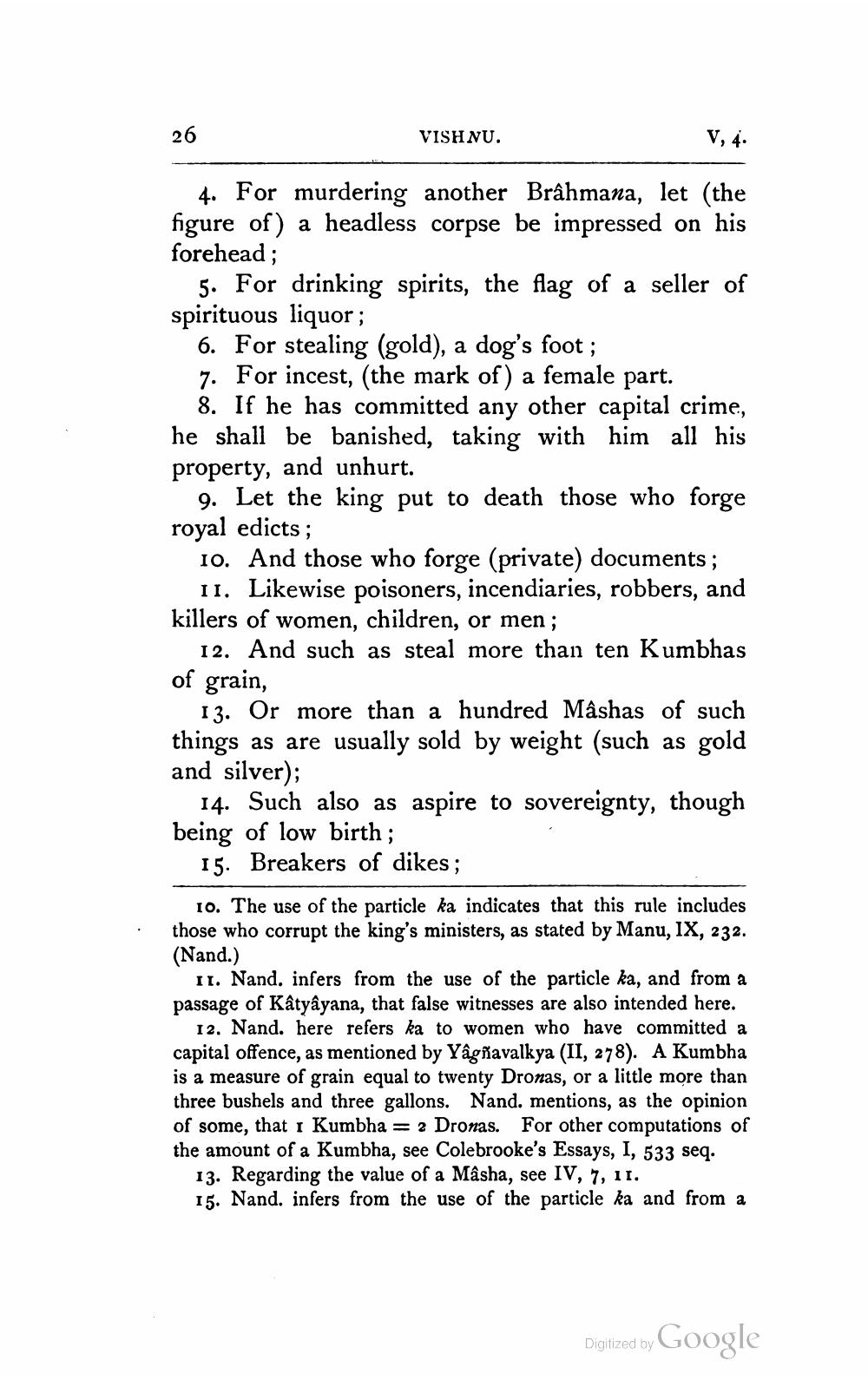________________
26
VISHNU.
V, 4.
4. For murdering another Brâhmana, let (the figure of) a headless corpse be impressed on his forehead;
5. For drinking spirits, the flag of a seller of spirituous liquor ;
6. For stealing (gold), a dog's foot ; 7. For incest, (the mark of) a female part.
8. If he has committed any other capital crime, he shall be banished, taking with him all his property, and unhurt.
9. Let the king put to death those who forge royal edicts;
10. And those who forge (private) documents;
11. Likewise poisoners, incendiaries, robbers, and killers of women, children, or men;
12. And such as steal more than ten Kumbhas of grain,
13. Or more than a hundred Mâshas of such things as are usually sold by weight (such as gold and silver);
14. Such also as aspire to sovereignty, though being of low birth ;
15. Breakers of dikes;
10. The use of the particle ka indicates that this rule includes those who corrupt the king's ministers, as stated by Manu, IX, 232. (Nand.)
11. Nand. infers from the use of the particle ka, and from a passage of Kâtyâyana, that false witnesses are also intended here.
12. Nand. here refers ka to women who have committed a capital offence, as mentioned by Vâgħavalkya (II, 278). A Kumbha is a measure of grain equal to twenty Dronas, or a little more than three bushels and three gallons. Nand. mentions, as the opinion of some, that i Kumbha = 2 Dronas. For other computations of the amount of a Kumbha, see Colebrooke's Essays, I, 533 seq.
13. Regarding the value of a Mâsha, see IV, 7, 11. 15. Nand. infers from the use of the particle ka and from a
Digitized by Google




